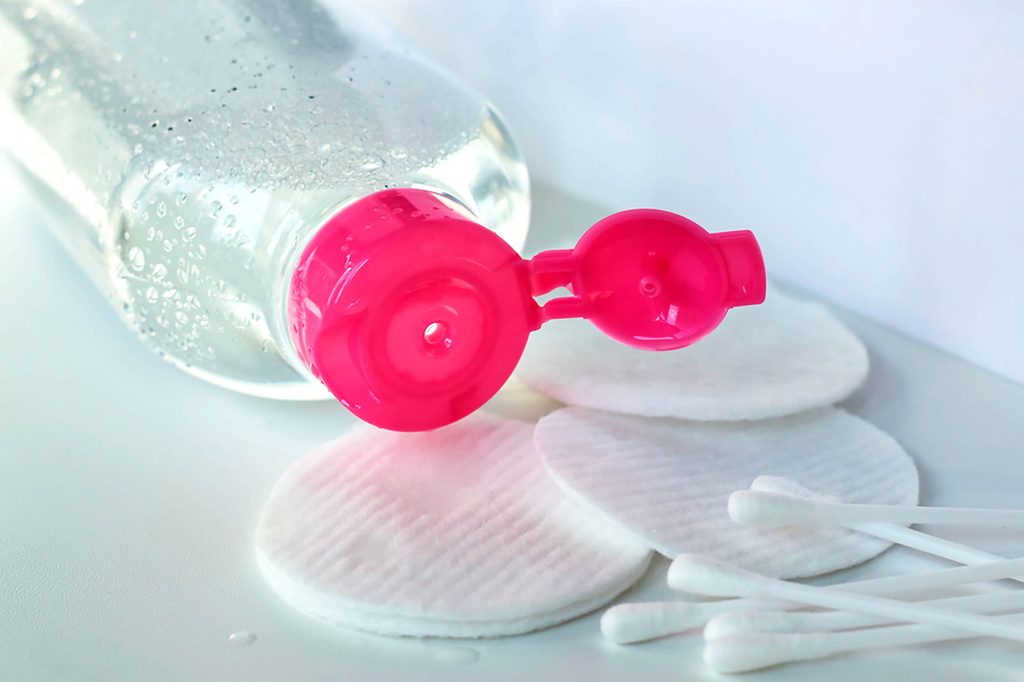Micellar Water, a Popular Beauty Trend Dating Back to France in the 1900s, Is Officially Back
Updated: May 17, 2021
This cleansing trend is being picked up by all the big beauty brands, but does it live up to the hype?
 Move over traditional soap and water—micellar water has taken over the cleansing world. It’s promoted as an all-in-one alternative to your typical skin-care routine, but what makes it so great?
Move over traditional soap and water—micellar water has taken over the cleansing world. It’s promoted as an all-in-one alternative to your typical skin-care routine, but what makes it so great?
Let’s start with the basics. Micellar water is essentially oily molecules suspended in water. A micelle (hence, “micellar water”) is a gentle cleansing oil molecule. These molecules gently attract buildups of sebum, dirt, makeup, and other impurities on contact.
The other important component of the cleanser is soft water, which is water with low concentrations of magnesium and calcium ions. This kind of water is generally preferred for cleaning and skin cleansing because it doesn’t leave any sort of residue or buildup. So essentially, the micelles attract impurities and the water gently washes them away.
Micellar water is primarily advertised as a makeup remover, but most dermatologists say it can be used as a one-stop shop for healthy skin. It removes light makeup, cleanses, tones, and provides moisture all at once. Since the micelles are oil-based, they do not strip the skin of its natural moisture like most traditional cleansers—it just gets rid of the dirt.
“Unlike soap, micelles dissolve impurities without stripping the skin, and since it has the same viscosity of water, the face feels clean and rejuvenated after treatment,” said board-certified dermatologist Rhonda Klein. “It also doesn’t require water to work, so no rinsing is required.”
While the trend has recently taken off, the formula itself is not new. It’s been used in France for over a century, beginning all the way back in 1913.
“French have been using micellar water for ages, notably Bioderma Micellar Water that started this revolution,” said Dr. Klein. “It used to be difficult to obtain the Bioderma version and thus many knockoffs have been introduced to the market recently. Bioderma is still far and away a major favorite for makeup artists, bloggers, etc for its makeup removing properties and skin-perfecting ingredients that soothe, cleanse, and decongest.”
The widespread popularity of micellar water can be tempting, but Klein also warns that it may not be for everyone, especially if you wear heavy makeup, like waterproof mascara or lip stains.
“It won’t remove heavy makeup, but is great to remove basic makeup, cleanse, and freshen the face without drying, stinging, or leaving behind residue,” she said.
Also, if you already have oily skin, choosing an oil-based product like micellar water might not be the best option according to Klein.
“Micellar water is good for sensitive, dry and normal skin types. It is usually not the best cleanser for oily or acne-prone skin where avoiding oils and using stronger facial cleansers may be necessary.”
In these cases, micellar water is fine to use as a light makeup remover or a midday refreshing cleanse, but if you need a deeper clean, you may want to stick to your soap.